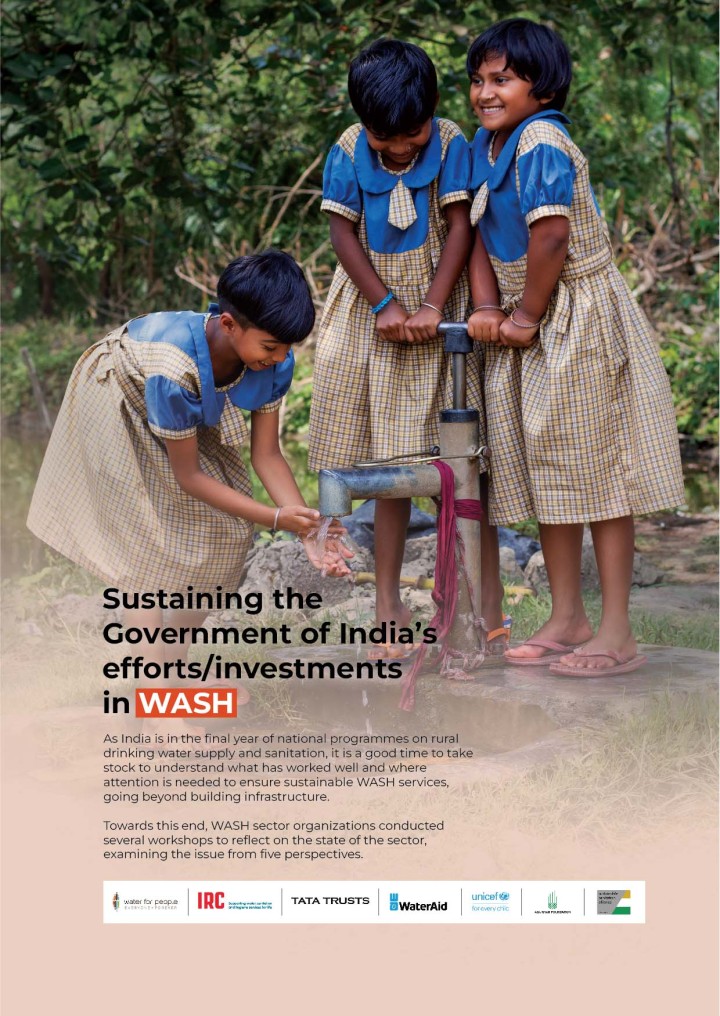As India is in the final year of national programmes on rural drinking water supply and sanitation, it is a good time to take stock to understand what has worked well and where attention is needed to ensure sustainable WASH services, going beyond building infrastructure. Towards this end, in 2022-2023, the leading WASH sector organizations conducted several workshops to reflect on the state of the sector, examining the issue from five perspectives, or building blocks.
Images

Image: National WASH Assessment
Using the IRC WASH system building block assessment tool we adapted it in consultation with experts from the WASH organizations for use in India at a workshop in 2022. The modified tool was further discussed with stakeholders later that year and finalised for field use.
In 2023, we conducted a state level assessment exercise with the Odisha state Swachh Bharat Mission - Grameen. The meeting was chaired by the Additional Secretary and attended by sanitation consultants from all districts. During the three-hour session, participants were divided into five groups to debate and score each of the building blocks. Additionally, we reached out to state-level NGOs for their scores. These were combined into a state-level WASH assessment policy brief that could be used by the NGOs and the government.
Later in 2023, we conducted a series of interviews with national WASH experts to elicit their views using the WASH assessment tool, and asked them to score the five building blocks. This was followed by a validation workshop where the findings were shared and discussed, before being finalised. The final national policy brief was circulated to the participating organizations for their approval.
The objectives were:
1. Collaborate with sector partners to dialogue about water, sanitation and hygiene beyond infrastructure coverage, focusing on sustainability of the services, and the systems strengthening required for the same to ensure progress towards the SDGs;
2. To engage sector partners and government (national and state) in the assessment, jointly developing the tools and framework, and identifying locations for qualitative data collection;
3. Identify areas for system strengthening and strategic investment by the sector partners and the government for sustainable services (external)
The detailed findings and policy briefs are provided below.
The documents are also linked to the SuSanA forum should you wish to contribute to this body of knowledge.















